Trampoline
A Novel in five acts by
Robert Gipe
. . . Our story so far
Dawn Jewell has run away from Thanksgiving dinner at her coalmining uncle’s house. She has stolen a four-wheeler and peered over the edge of a highwall into the strip mine she and her grandmother are protesting. As part of their protest, Dawn and her grandmother recorded a radio story for a local family radio station, Bilson Radio. Dawn’s uncle, her grandmother’s brother, thinks Dawn’s grandmother is wrong to get her mixed up in such things and tells Dawn’s grandmother so. It is this conversation that causes Dawn to flee the Thanksgiving gathering. Before she fled, Dawn’s cousin Denny, who works on the strip mine, gave her whiskey. Dawn leaves her four-wheeler and follows an owl into the woods and falls into a hole deeper than she is tall. The hole may have been formed by subsidence from an underground mine. But perhaps not. In an earlier episode, Dawn has become infatuated with the voice and musical taste of a young disc jockey named Willett Bilson.
Escape Velocity
Part Three: What Hurts
I lay at the bottom of the hole until the stars came out. Orion the hunter shot straight up into the moon. My dad first showed me Orion’s belt. He showed me how once you saw the belt, the rest of him fell into place. He told me he liked the way it looked like the hunter was running and shooting. Like Rambo or something. I got lightheaded and I saw Daddy in a tree stand above me, bow season. Daddy lifted out of the tree stand and began to run across the sky. I hollered but he couldn’t hear me.
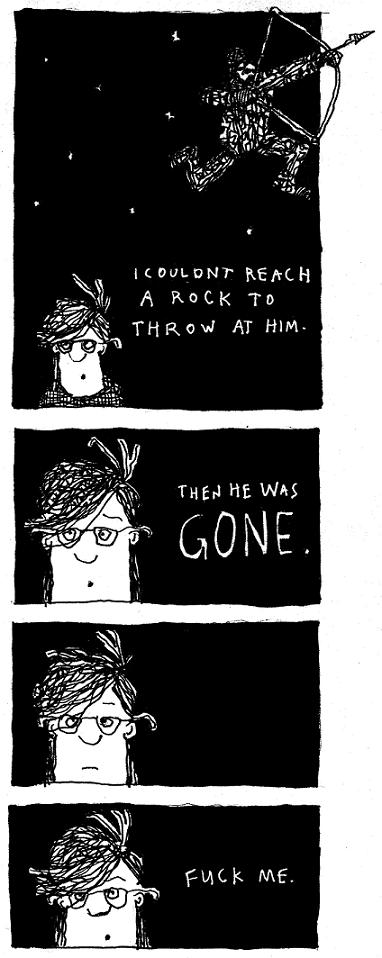
The owl settled in a tree above me. I spit out little pieces of leaf.
My father built his own truck, put it together from the parts of other trucks—eight Ford Rangers lined up facing the road—eight Ford Rangers it took for him to get one to ride back and forth to work. Hubert gave people credit if they’d bring him a Ford Ranger, but they had to park them lined up straight the way Daddy liked them or it was no deal.
The owl hooted.
I would go out and sit in one of the Rangers the winter after Daddy died and Momma started grieving out of a Heaven Hill bottle. I thought about them trucks and the night got colder, and my leg hurt worse. I had to keep my wits about me. Of course you know I survive because I’m telling you the story right now. But you don’t know I don’t lose a finger, do you? Maybe I lose my foot. Maybe I lose my foot and grieve over it and become a drunk and then a drug addict like Momma. No. I wouldn’t be like her. Not the same mistake. A different mistake. I lose my foot and get depressed about it and eat and eat and get so enormous, like six hundred pounds, I can’t get out of bed, look like I melted into the sheets. See me, unwrapping a whole box of Little Debbie oatmeal crème pies, all twelve pies, so I can cram them in my mouth all at once to suffocate myself?
“Dawn?”
Momma stood before me, silver like the dull side of aluminum foil. Momma looked young and clean, her face smoothed out by the hunter’s moon. She crouched at the lip of the hole. She wobbled and then steadied herself. She lay her hand on my cheek. Her fingers against my face didn’t feel right.
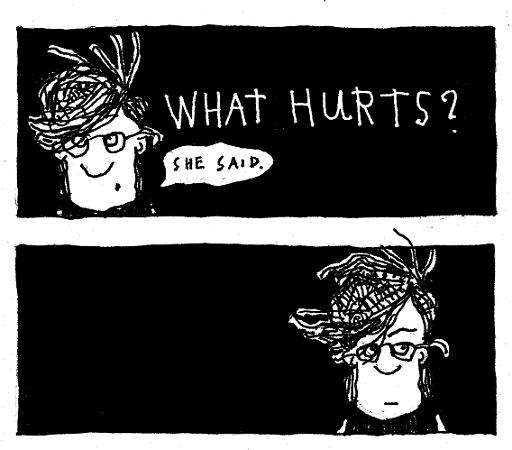
A flashlight beam lit her from behind.
“Hubert,” Momma said over her shoulder.
Hubert put the light in my face, his voice deep behind the shine. “What are you doing out here by yourself?”
Safer by myself than with you, I’d of like to said, but I didn’t say anything.
“Put your hands up,” Hubert said.
Hubert lifted me out of the hole and carried me up the hill. His hair was long and greasy. Stubble filled his cheeks outside his moustache and goatee. His miner’s jacket opened on a wifebeater and smelled of burning plastic and the salve he put on his arthritis. He carried me to the mine road, to a coffee-colored Delta 88 he left in the yard with the keys in it in case somebody needed to move it. Hubert lay me in the backseat. Hubert and Momma got in the front.
“Where’s Mamaw?” I said.
“She went the other way,” Momma said. “Hunting for you.”
Hubert and Momma headed up Blue Fork towards Virginia. They said they were taking me to the hospital there. Then they fell to talking about a man who pawned seven weedeaters for a friend. The weedeaters turned out to be stolen and now the man who pawned it was facing a charge. They stopped at the man’s house, and he came out, three hundred pounds easy, cheeks and forehead full of acne, all red-rimmed craters and white-topped peaks. Wet strings of black hair cut across his face like the lines on a globe. He came to Momma’s window.
“In the back, Cinderella,” she said.
Cinderella got in beside me. He rubbed his raisin eyes with the heels of his hands, and breathed like he was snoring even though he was awake. He cried over a lost girl.
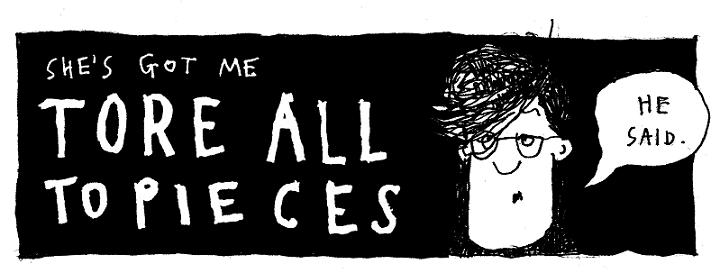
“I don’t care,” I said.
“She was everthing to me,” he went on. He began to moan, like you’d hope your mother would at your funeral.
“I don’t see why,” Momma said to Cinderella. “She told everybody you stole that church van. She parked it at your mother’s house.”
“I know,” Cinderella said.
“She still gonna be your ‘everthang,’” Momma mocked Cinderella, “when you go to jail over them weedeaters?”
Cinderella put his face in his hands and sobbed.
“Yes,” he said.
Momma said, “I should have drowned you when I had the chance.”
“When was that?” Hubert said.
“Seventh grade.”
God kept Momma from telling that story. Thank you God. Momma opened a beer and handed it to Cinderella. “Here.”
Cinderella nearly dropped the beer taking it from Momma when Hubert went too sharp through a curve.
“Goddam, Hubert,” Cinderella said. Then he turned to me. “What’s wrong with your leg?”
I didn’t say anything.
“This girl is in shock,” Cinderella said.
“She ain’t in shock,” Momma said, “She’s my daughter, dumbass.”
“I’m in shock at how retarded you are,” I said.
“Hey,” Cinderella said, “You aint got no call to talk to me like that.”
I said, “Momma, I’ll give you a hundred dollars to put the radio on something good and turn it up loud as it will go.”
“Loud don’t make it good,” Hubert said. “Good you don’t have to turn up loud.”
Hubert had been drinking too much. If he hadn’t, he wouldn’t have said that. He would have sat there still as a stone and not said anything, all John Wayne about it.
“Give me one of them beers,” I said.
“I aint,” Momma said.
“Give her one,” Hubert said, “might make her nicer.”
“Go to hell, Hubert,” I said.
I hadn’t been around Momma and Hubert for weeks. It made me sick how easy I fell into their way of talking. Momma handed me a beer. I drank half of it in one pull.
“Daggone, Hubert,” Cinderella said, “who is this girl?”
Cinderella looked at me. His mouth smelled like he’d thrown up a bale of hay.
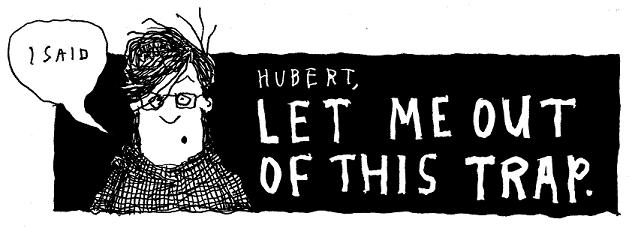
Hubert laughed through his nose at that, and I wanted to break it for him, take that nose and twist it to where the falling rain would drown him.
“Dawn, you need to settle down,” Momma said. “Drink your beer. Take it easy. It’s a holiday.” Momma started to sing. “O come all ye faithful.” There were new gaps between her teeth.

“That’s a Christmas song,” Hubert said.
“No it aint,” Momma said. “It’s a Thanksgiving song.”
“No it aint,” Hubert said.
“I think she’s right, Hubert,” Cinderella said. “I think she is.” Cinderella nodded at me.
“Hey, Cinderella,” I said. He looked at me out his raisin eyes. I said, “Give me your knife.”
“I aint got a knife,” he said. “What you want a knife for?”
“Cut my throat you’re so retarded.”
“Dawn,” Momma said.
“Then what’s the next line?” Hubert said.
“I don’t know,” Momma said. “Yall got me flustered.”
“Oh come ye, oh come ye,” I sang, and Hubert joined in on “to Bethlehem.”
“See,” Hubert said.
Momma shook her head.
The road wound past broke down coal camp houses pressed against the blacktop, past the pipes and belts and rows of lights of the processing plant, past wide spots puddled in gray water, places that weren’t anything anymore, weren’t nature, weren’t human, just places left behind. We started up the mountain. A curve snuck up on Hubert while him and Momma were singing some country song and I got thrown up against Cinderella. The pain in my leg jumped up in my waist and I hollered out right as I landed against him. He put his arms around me. I put the heel of my hand in his greasy face and shoved.
“Get your hands off me,” I said.
He put his hands up in the air and I went back to my side of the car. Nobody said much the rest of the way to the dinky one-hall hospital across the Virginia line. When we got there, the doctor looked at me standing in the hall, and said there wasn’t nothing broke and that I could go on. Momma said she was worried about how I was hurting, and couldn’t he give us something. The doctor sized Momma up and sent us on home.
Hubert was taking Cinderella wherever it was they were taking him and so Momma and I sat in the hospital front room waiting for Hubert. She looked all through her coat pockets for cigarettes, for her keys, for change for a pop, for her lighter, anything to keep from having to look at me. She found the lighter and rolled it over and over in her hands.
She said, “This is where they brought your daddy.”
“Do what?” I said.
“After the accident. This is where he died.”
There was a spot of color on my mother’s cheek, just a spot of the way she was before Daddy died, seeping through like blood seeping through a rag. I wanted to wring my real mother out from the rag her body had become. I wanted to wring that rag out over a bucket, pour what I wrung out into some kind of mold, like a jello mold of my old momma, my good momma, and make her back into what she was.
Hubert came through the automatic doors, coughing and sniffing. Momma said to me, “Did your mamaw give you any money?” When the automatic hospital doors fell closed, it was like I woke up, never knowing I’d been asleep. The spot of color was gone from Momma’s cheek. She looked like candle wax. I went out to the car. Cinderella was sitting in the front seat.
“What are they doing in there?” Cinderella said.
I got in the back seat, reached across the front, and changed the radio to the Bilsons’ station. My own voice came out the speakers.
“I love this place,” I was saying, “I don’t want to see it tore all to pieces.”
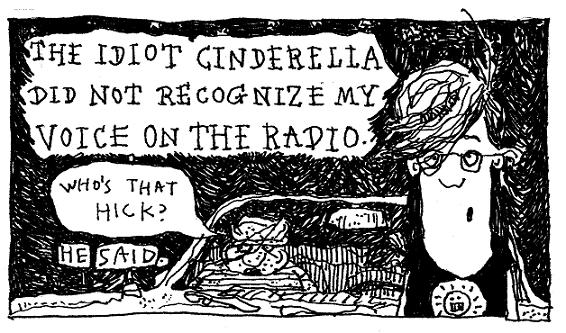
“These mountains are what we got,” my voice on the radio said, “they are what holds us together.”
“I aint never heard a girl preacher on there,” Cinderella said, and changed the station.
When Hubert and Momma came back out, we took off into the darkness, headed for home. Hubert stopped at a place in the woods, a beer store had Budweiser NASCAR flags and the price of cases of beer in four foot high letters all over its outside. Hubert and Cinderella went inside.
They came out loaded down with cases of beer. Hubert and Cinderella put the beer in the trunk and got in the car. Hubert gave me a beer. I sat drinking it, and a car full of girls coming home from a night out pulled in. They were dark-headed and older and their laughs were sharp as cat claws. Cinderella sat eating barbecue pork rinds and looking at the dark-headed girls. He rolled his window down. Icy air rushed in. The girls passed, trailing fake strawberry smell.
“Aint that something?” Cinderella said.
Hubert grabbed the pork rinds out of Cinderella’s hand, got a handful and dropped the bag in my lap.
“Where’s your mother?” Hubert said.
I hadn’t noticed she was gone. “I guess she went inside.”
The girls came out of the store.
“You don’t know what you’re missing,” Cinderella said to them through the open window.
The girls laughed. Cinderella got out of the car.
“Who you laughing at?”
“Cin, get back in the car,” Hubert said.
“Hey,” Cinderella said, and grabbed one of the girls by the arm.
“Goddam it,” Hubert said, and got out of the car.
My mother came around the side of the building. Snow began to fall. I jumped out of the back as a girl broke a wine cooler over Cinderella’s head. Momma shoved her. Hubert grabbed my mother. I slid into the drivers seat and started the Olds. I backed out and drove off. Momma and Hubert, Cinderella and the wine cooler girls, they were all screaming—at each other, at me, at the cosmos.
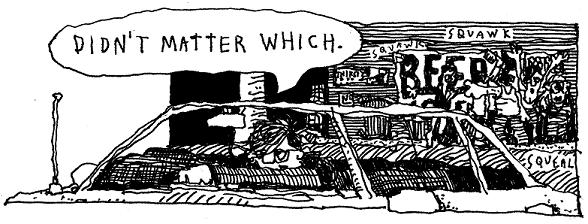
The snow fell harder. I started home through Astor’s Pass, a different way than the way we came. It wasn’t til I came through a hairpin curve a third of the way up the mountain that I remembered hearing if there was any snow on the ground anywhere, not to cross Astor’s Pass. I accelerated into a patch of ice on a steep stretch. The car stopped moving and the wheels spinning sounded like the howling of the wind. The Delta 88 slid backwards and started getting sideways. The car skidded off the guardrail on one side of the road and missed the guardrail on the other side. I closed my eyes as the Oldsmobile began to roll down the mountain. When the car hit a tree and stopped, the ground was against my window. I felt my face for my glasses. They were gone. Tree trunks and branches crossed and re-crossed in the headlights. Everything loose in the car, all the cups, and unpaid bills, half a fifty-pound bag of dog food, piled on top of me. I was like the cowboy in the movie when he gets trapped under his horse, except instead of a horse I was trapped under a pile of my family’s shit.
Snow fell on my head through the shattered passenger window. I closed my eyes.
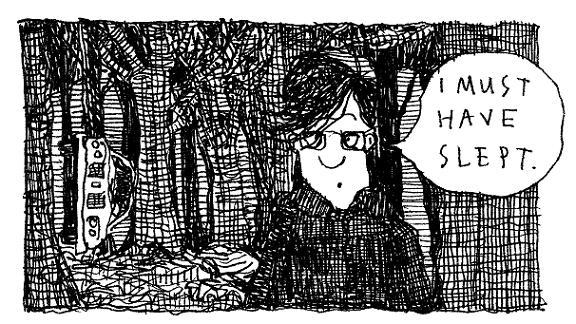
I woke to the first blue of day, to the crunch and creak of the taped-up car seats. My breath clouded up in front of me and floated past my ear. I worked my legs loose from under the steering wheel, pulled myself up by the passenger seat belt. I stood, ankle throbbing, my head sticking out the hole where the passenger window used to be.
A voice came from above. I looked up through deep patches of snow.
“Hey there.”
Daylight soaked into the edges of my cousin Denny’s silhouette. He slid down the bank, stood eyeball to eyeball with me, close enough to be in focus. He stuck a finger behind his lower lip and hooked out his tobacco. He was so close I could see the hairs on his beard, clear and red, each one sharp in the morning light like he was on a high-definition television.
“Having trouble reaching escape velocity,” he said, flinging the lump of minced tobacco to the ground. He rolled his tongue against his lower teeth.
“I guess.”
“I thought I would make a good astronaut,” Denny said, spitting out the last pieces of tobacco. “But I never could figure where the signup was at. Can you get out of there?”
“I don’t think so.”
Denny climbed up on the door. He put his coat around the broken glass edge of the window.
“Be careful now,” he said, and pulled me up and out.
Denny stepped off the car onto the hillside. He lifted me into his arms. He was barely as tall as I was, and staggered as he leaned back. He got me up the hill to his truck and sat me down in the front seat. He stood with his elbow resting on the open truck door. Denny’s breath heaved out of him. He rubbed his belly, put another dip of tobacco in.
“You are needed here,” he said. Then, “Do you have anything you want to get out of the car?”
“What did you say?” I said.
His eyes were chocolate and ink. “I said, ‘we need you here.’ You and your mamaw. Telling the truth. Nobody can say so. But we do. Don’t take it personal when people threaten you.”
“Don’t take it personal?”
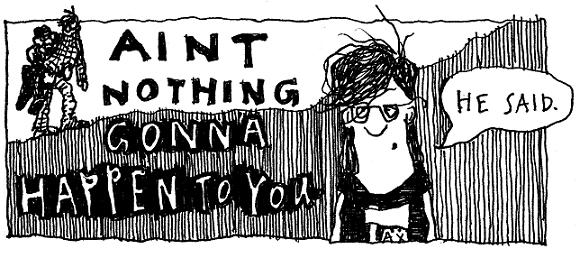
The woods were snow quiet.
“So you want anything out of there?” Denny said.
Denny stepped away from me, went out of focus, and my chest tightened, like my foot when I was little and Mamaw would draw my shoestrings tight.
“That dog food,” I said. “And my glasses.”
Denny made his way down the side of the hill to the car. He cupped his hands to the windshield and looked in. He climbed on top of the car and lowered himself in. I could hear the crinkle of the dog food bag. I could hear him raking loose food into it, separating out the papers and the dirty clothes and the food wrappers. I panted like a black dog.
Denny’s truck was running. I slid across the front seat, put it in gear, and swung it around. In the rearview I saw Denny scramble up the hill, grab for the truck bed, but I got away. I rolled down the Kentucky side of the mountain.
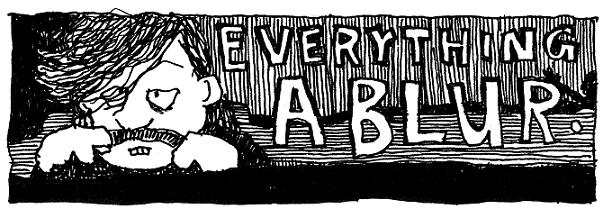
The truck radio was on an old rock and roll station. Molly Hatchet, flirting with disaster. I turned the knob, moved the blue number to Bilson radio. I caught the middle of a song full of tingly guitars. Run run run run run the singer sang. When I turned onto the state road, the truck roared like it hated that music. I stomped the gas again and made it roar some more. Escape velocity. A deep-voiced woman sang about all tomorrow’s parties. Another truck, I think it was a Dodge, blinked its lights at me, blinked its lights at Denny, I guess. I got to the mouth of the creek, and the road widened again as I came into town. I drove past the bootleggers, past the tombstone marker for the old black school, past the tunnels where they moved the river out of downtown.
Willett Bilson came on the radio and told me I had been listening to the Velvet Underground, told me he had to go feed chickens and was going to play the whole album again. I pulled up at the stoplight next to the high-rise nursing home old folks apartment building. It crossed my mind to take Denny back his truck.
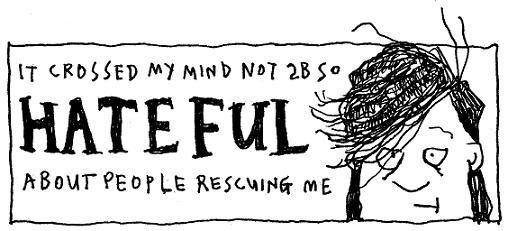
But when the light turned green, all I wanted was Willett Bilson. I turned left at the flood wall and I roared past Wal-Mart, the hospital, and out of town. I was on the new road, the bypass cutting through the land of one of daddy’s friends, the one with the horses in a barn where he dropped the hay through the holes in the loft, strings from the bales of hay hanging on a whittled wood peg. I headed for Virginia. The singer said he was waiting for his man.
I was well into Virginia, on the river road that ran to the top of Bilson Mountain, when I ran out of gas. I pulled over, listened to the song Femme Fatale. Cause everybody knows. The things she does to please. Just a little tease. Oh oh whoa. I leaned forward to see the ridgeline above me, made out the lights on the tower where the Bilson radio signal came from straight in front of me, straight across the river, straight up the hill. People passed, their headlights blinding me. People going to Wal-Mart, to the malls in Tennessee. Going to buy stuff. Right on schedule. Regular people. It was Black Friday. Willett went off the air and a woman with a voice like Mamaw’s came on.
“Well, we’re gonna play this here news story again, about what’s going on with our friends over in Kentucky,” the lady said. “And then we’ll have some Country Gentlemen for you.”
The voice of Willett Bilson introduced the story about me, about the hearing. If I had gas, I would have gone up that hill and gone in that radio station and grabbed ahold of that Willett Bilson, pulled him in my lap to listen to that story with me.
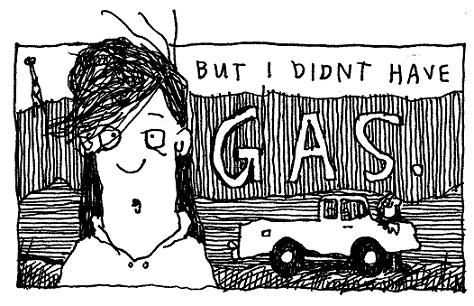
My voice on the radio said, “They need to stop permitting these mines is what they need to do.”
Denny said aint nothing gonna to happen to me. Said they need me to run my mouth. Said somebody had to say what needed saying. Said he and his daddy had my back, even if they had to say ugly things to my face.
Mamaw’s voice came on the radio, said, “The governor needs to get involved.”
I thought of Kenny’s baby at the hearing, Kenny’s hippy baby in the black onesie, and I wished I could live in a hippy place, like that baby did, a place where I could mix up in things and then run away when it got sticky. Go hide and listen to people play the bongo drums til it was time to go out and stir things up again. I’d like to live in a place where doing something righteous was a big party.
Mamaw’s Escort pulled up behind me and she got out in a green t-shirt with a frog on it and putty-colored walking shoes she ordered out of the Sunday magazine came in the Lexington paper. She got in the truck. The story about us was still playing on the radio.
“They’s a right thing and a wrong thing,” Mamaw said on the radio. “And they know which is which. Whether they’ll let on like they do or not.”
And that was the end of the radio story. There was ten seconds of nothing, and then some guy sang through his nose, “She walks through the corn leading down to the river. Her hair shone like gold in the hot morning sun.”
I turned the radio off.
“Nice truck,” Mamaw said.
I didn’t say anything. Didn’t have anything to say.
“Quite a night,” she said.
The cars kept coming past. Come all ye faithful.
I said, “Mamaw, why do you fight the coal companies?”
Mamaw looked me dead in the eye. “I don’t know. They just make me mad, I guess.”
“We could be doing something else,” I said.
Mamaw looked out at a field coated in frost.
“I used to think,” Mamaw said, “things could be different.” An SUV slowed down to look at us and then went on by. “But I don’t guess they could,” Mamaw said.
I felt the crown of my head where I butted Albert at school. It was tender.
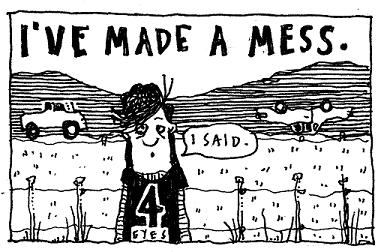
“Nothing that won’t clean up,” Mamaw said.
She put her hand out and I put mine in hers. She closed her eyes and I closed mine. She said, “Let’s go get you some gas.”
We got in the Escort and went to the filling station where the river road hit the four-lane. She filled a gallon can with gas. When we got back to Denny’s truck, I got out with her to put the gas in. She is so short, I had to help her balance the can. When she finished, she handed me two twenty-dollar bills.
“Go on,” she said.
“What do you mean?” I said.
“Keep going.”
“I don’t have my license.”
“I don’t see no police.”
“I aint got my glasses.”
“You come this far.”
Mamaw opened the truck door. I got in. She stood looking up at me. She looked like a doll, like her head was a dried apple.
I rolled down my window.
“What about Denny?” I said.
“Denny will be all right.”
“I don’t know where to go.”
“You know I love you,” she said.
I nodded.
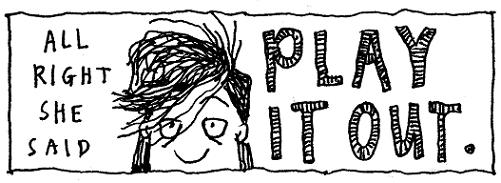
And then Mamaw drove away. When she did, I didn’t want to listen to Bilson Radio anymore. I didn’t want the company of Willett Bilson. I didn’t want anything. I drove out to where the river road hit the four-lane. There was no one behind me and so I sat there. Longer I set, harder time I had breathing. Before long I couldn’t catch my breath at all. The truck got all hot inside, and my belly was popping in and out, and I started banging the window glass with the heel of my fist. It was like there was bad air in that truck cab.
Then a woman in an Astro Van pulled up behind me, and she was talking to her baby in the back seat. I could almost hear her talking in my rear view. And I was all right. My breath came back. I scratched out, turned left across traffic, towards Kingsport.
Before I got to Gate City, I stopped at a restaurant in a stand of pines. It was an old place, all glass across the front. When I got inside, the place smelled more like a bar than a restaurant. I sat down in a booth. The waitress asked me if I wanted coffee, and I nodded. The sun broke through the window and the ceramic cup she set in front of me steamed. Snow thickened on the pavement outside, and an old man in a felt hat fell right on his behind coming in. He picked himself up, but he left his hat laying in the gravel. On the wall between the windows at my booth, there was a picture in a dime store frame of an airplane landing in the straightaway in front of the restaurant. My brother and I sat with our parents in places like this many a night when we were little, trading punches by the light of a jukebox.
“What can I get you?” The way the waitress chewed her gum reminded me of every girl I ever hated.
I said, “I need another minute.”
The waitress didn’t smile when she said, “Honey, you all right?”
“Last night, I was at the hospital,” I said.
The waitress dropped her hands to her side, but her jaw kept working that gum.
“They had a TV bolted to the wall.” I put my hands around my coffee mug and squeezed on it. The warmth, the squeeze, made me feel better. “They was an astronaut movie on.” That was true. There was. “One of the astronauts was floating around outside the spaceship breathing through a huge long tube like a professional carpet cleaner uses.”
The waitress sat down. “I seen that. The dude’s tube broke loose from the space ship and it flopped real slow like a water snake.” The waitress showed me how the tube flopped with her arm. It was exactly the way it was.
I nodded at the waitress. “And the astronaut turned real slow away from the ship. Head over heels.” I leaned towards the waitress. “Twisting out into the nothing.”
“And they showed a closeup of his face,” the waitress said.
“And he was smiling.”
“It was so creepy,” the waitress said.
“Yes it was.”
The waitress stood up. She shook her head and popped her ballpoint open and touched the point of it to my page in her order book. She raised her chin like my time was up. She was wanting to be tough, but her eyes had a rattled look. Least I thought they did. I ordered chocolate chip pancakes and a chocolate milkshake. When the waitress went to put the order in, I went out to the truck and got in.
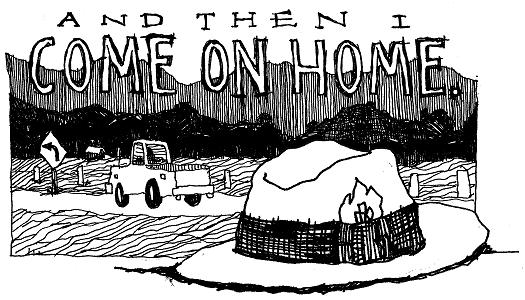
End Part Three
≈
Read Escape Velocity Part Two: Smother
Read Escape Velocity Part One: Driving Lesson
Coming in December, 2012: Act Two of Trampoline: Reckoning Part One: Dead Cow in the Creek
≈
Author's Statement:
I was born in North Carolina in 1963 and was raised in Kingsport, Tennessee, a child of the Tennessee Eastman Company, Pals Sudden Service, and the voice of the Vols, John Ward. My dad was a warehouse supervisor and my mom a registered nurse. I went to college at Wake Forest University in Winston-Salem, North Carolina where I was a DJ for a student radio station I helped start. I went to graduate school at the University of Massachusetts at Amherst and got a masters in American Studies. I worked as a pickle packer, a forklift driver, and eventually landed a job as marketing and educational services director for Appalshop in Whitesburg, Kentucky in 1989. At Appalshop I worked with public schoolteachers on arts and education projects. I met my wife, Robin Lambert, at a conference in 1992, and we bonded over an interest in rural communities and an opposition to school consolidation. We married in 1993. She is my heart's delight. Since 1997, I have been the director of the Appalachian Program at Southeast Kentucky Community & Technical College in Cumberland, Kentucky. I am one of the producers of Higher Ground, a series of community musical dramas based on oral histories and grounded in discussion of local issues. I am also a faculty coordinator of the Crawdad student arts series. I have had fiction published in Appalachian Heritage and have attended the Appalachian Writers Workshop in Hindman every year since 2006.
I have been working on the characters in Trampoline since 2006. The narrator is Dawn Jewell. She lives in a coalfield county in eastern Kentucky, and is in high school when Escape Velocity takes place. She's having a rough go of it. The sound of people telling one another stories is the most precious sound in the world. Trying to catch that sound on the page is my favorite part of writing. Most of my favorite writing—Flannery O'Connor's stories, the novels of Richard Price and Charles Portis—seems to me written by ear. When writing is going best for me, it's like taking dictation from voices I hear in my head. As far as the drawings go, I have drawn pictures all my life, much longer than I have written stories, and with more compulsion. Escape Velocity is the first time I have seriously tried to integrate fiction and drawing. I love episodic storytelling, especially the great HBO series—The Wire, Six Feet Under, Deadwood, etc.—and have enjoyed thinking about how to break a story into semi-coherent pieces.
—Robert Gipe
≈
